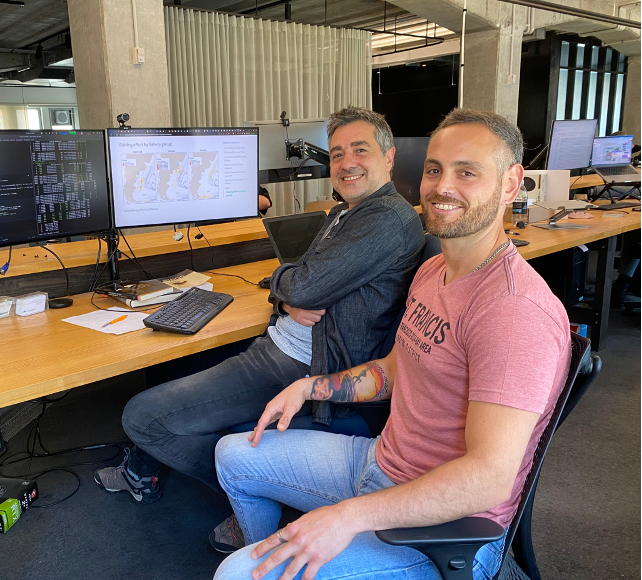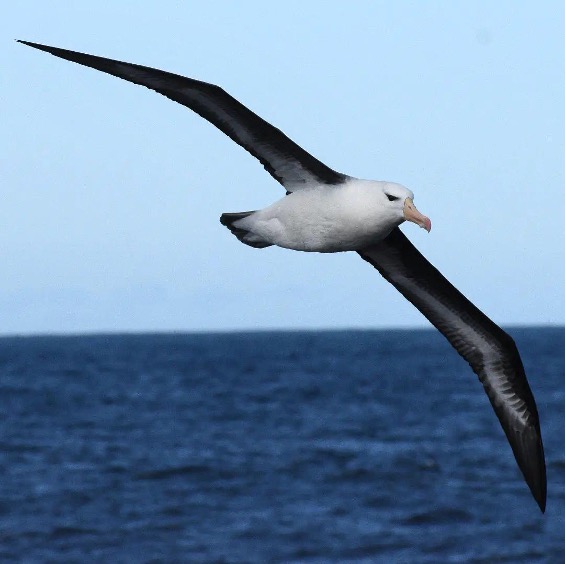 ACAP Secondee Maximiliano Hernandez (right) with Dragonfly's Environmental Data Scientist, Yvan Richard (left); photograph courtesy of Sarah Wilcox
ACAP Secondee Maximiliano Hernandez (right) with Dragonfly's Environmental Data Scientist, Yvan Richard (left); photograph courtesy of Sarah Wilcox
There may have been a delay of two-years for Argentinian Maximiliano Hernandez to complete his secondment developing an Ecological Risk Assessment within a framework of seabird conservation, but from his perspective, it was worth the wait. Maximiliano had initially planned for the secondment to take place in November 2020, however the COVID-19 pandemic put his travel to New Zealand on hold.
Maximiliano is a PhD student at the Institute of Marine and Coastal Research, National University of Mar del Plata in Argentina, and is interested in the development of Ecological Risk Assessments specific to species known to interact with Argentinian fisheries, which includes a number of ACAP-listed species.
His successful application to ACAP’s Secondment Programme in 2019 included the New Zealand Department of Conservation facilitating opportunities for Maximiliano to work with experts in ecological risk assessment whilst ACAP provided funding for travel and living expenses during the proposed project.
 A Black-browed Albatross - one of the first species, alongside the White-chinned Petrel, Maximiliano chose for his first assessments due to the abundance of population data and their high catch rates in Argentinian fisheries; photograph by Maximiliano Hernandez
A Black-browed Albatross - one of the first species, alongside the White-chinned Petrel, Maximiliano chose for his first assessments due to the abundance of population data and their high catch rates in Argentinian fisheries; photograph by Maximiliano Hernandez
Maximiliano was afforded the opportunity to work under the guidance and expertise of Dr Yvan Richard, an Environmental Data Scientist with Wellington-based company, Dragonfly Data Science. Yvan has over 10 years’ experience in carrying out Ecological Risk Assessments and introduced Maximiliano to several programming tools used to write code for the assessments, skills which will benefit not just Maximiliano but his Argentinian colleagues on his return. The results of the analyses will contribute to the effective implementation of Argentine NPOA-Seabirds.
Capacity building through the fostering of collaboration and knowledge-sharing between Parties are key tenets that underpin the philosophy of the ACAP Secondment Programme. The ACAP Secretariat is delighted to finally report on the successful completion of Maximiliano’s secondment, which highlights how a collaborative approach between Parties serves the Agreement in striving toward its central purpose - to improve conservation outcomes for all ACAP-listed species.
Read more about Maximiliano and his time spent with Yvan Richard in Dragonfly’s article on the project by Sarah Wilcox (link).
9 December 2022

 Français
Français  English
English  Español
Español